Understanding the Power of Community in Autism Advocacy
Community involvement plays a crucial role in shaping perceptions, providing support, and fostering acceptance for individuals with autism. While families face challenges in social participation due to behavioral and environmental mismatches, their desire for inclusion remains strong. This narrative explores how community efforts—through events, support networks, and service activities—have a profound impact on autism awareness and the lives of those affected.
The Significance of Community Service in Autism Education and Awareness
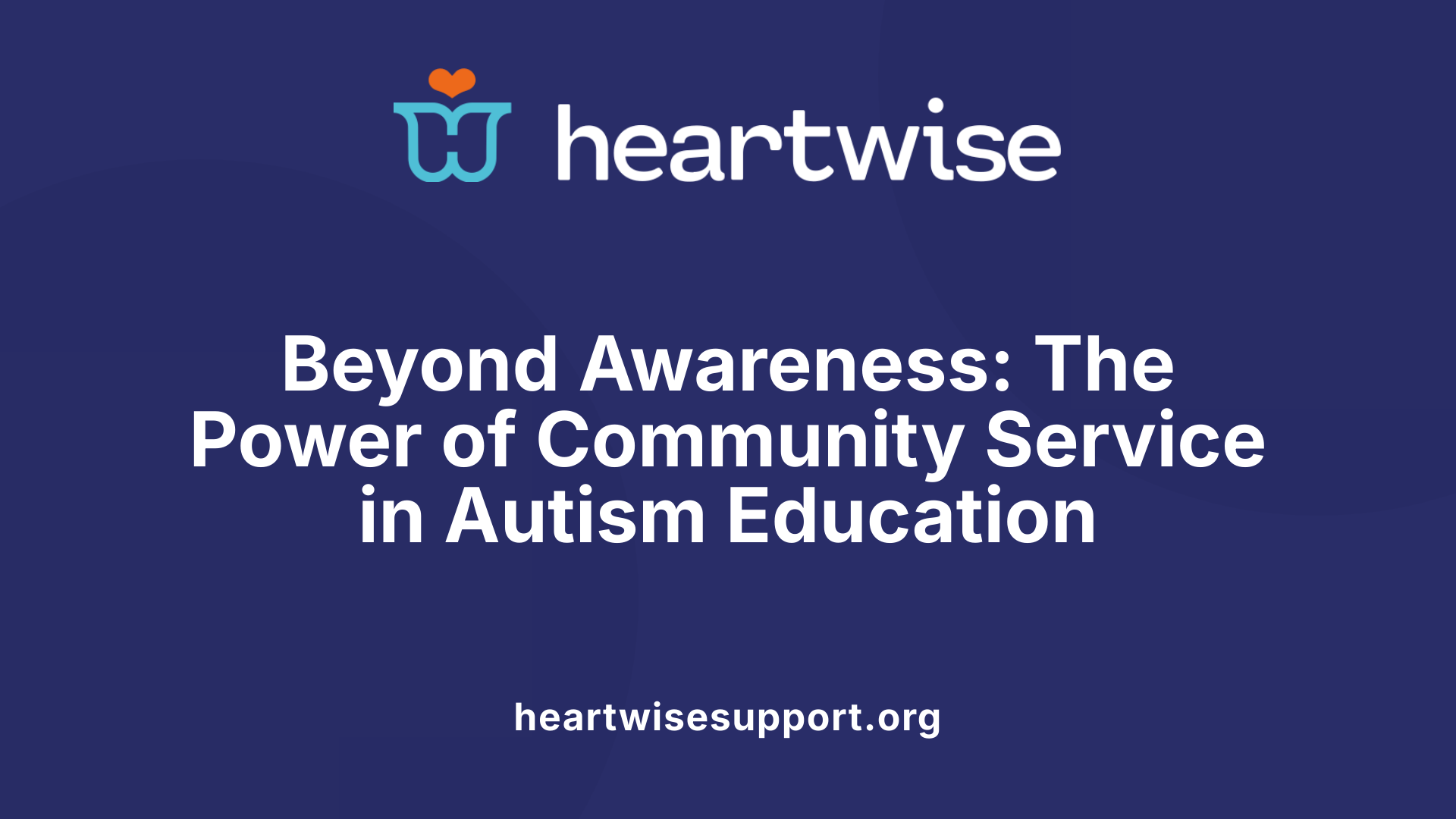
Why is community service important in autism education and awareness?
Community service plays a crucial role in promoting autism understanding and fostering societal acceptance. Through active participation, community members and volunteers gain firsthand insights into the strengths and challenges faced by individuals with autism. Events such as informational campaigns, awareness walks, and inclusive projects serve to educate the public, reduce misconceptions, and showcase the talents of those with autism.
For individuals with autism, especially young adults, engaging in community service offers opportunities to develop social skills, build confidence, and forge meaningful friendships. These activities promote practical skill-building and enhance self-esteem by allowing participants to contribute positively to their communities.
Collaboration among schools, organizations, families, and local agencies forms a supportive network that encourages inclusion and empathy. By integrating community service into autism initiatives, society takes active steps toward reducing stigma, creating an environment of understanding, and ensuring that individuals with autism are recognized and valued.
Overall, community service initiatives serve as bridges that connect autism awareness to tangible social change, creating a more inclusive and compassionate society that respects and supports neurodiversity.
| Community Activities Supporting Autism Education | Description | Benefits |
|---|---|---|
| Awareness campaigns and informational events | Distributing brochures, hosting talks, and public education | Increased understanding and reduced stigma |
| Inclusive workshops and expos | Hands-on activities focusing on strengths, talents, and sensory needs | Foster appreciation, adaptation skills |
| Volunteer-led support groups | Peer mentoring, sharing experiences | Sense of belonging, emotional support |
| Community service projects, like park clean-ups | Practical activities involving families and individuals | Teamwork, social skills, community bonding |
| School and organizational partnerships | Collaborations for inclusive events and learning experiences | Enhanced accessibility, skills development |
These initiatives incorporate a variety of strategies that promote awareness while actively involving the community and individuals with autism.
How community service fosters understanding and acceptance
Community service activities are instrumental in shifting perceptions and cultivating a culture of acceptance. By participating in projects such as tree pruning at local parks, children and young adults with autism can develop social competencies like communication, cooperation, and teamwork in real-world settings.
Engaging in such activities also nurtures empathy and compassion. Participants learn to recognize how their actions impact the environment and community, fostering a sense of responsibility and connection.
Moreover, community service broadens perspectives by exposing individuals with autism to diverse environments and experiences. This engagement encourages curiosity, supports lifelong learning, and promotes independence as participants learn decision-making and responsibility.
A vital aspect of these projects is building trust and rapport among individuals, mentors, and facilitators. These relationships enhance social skills, confidence, and personal growth.
Additionally, community service creates spaces for families to connect and share resources, strengthening networks and collective resilience. Such involvement offers emotional and practical support, reducing feelings of isolation and emphasizing community supportiveness.
In summary, community service fosters greater understanding and acceptance of autism by actively involving communities in meaningful, inclusive activities that highlight strengths, promote empathy, and build lasting social bonds.
Enhancing Perception through Community Participation
How can community participation influence understanding and perceptions of autism?
Community involvement plays a crucial role in shaping how society perceives autism. When families and individuals with ASD engage actively in community activities, it fosters opportunities for meaningful interactions and shared experiences.
Direct interactions in community settings help demystify autism, showcasing the strengths, talents, and diversity of autistic individuals. These shared experiences can challenge stereotypes and misconceptions, promoting a more nuanced understanding.
Inclusive activities—such as community service projects, art workshops, sports, and social events—allow autistic children and adults to demonstrate their abilities and build confidence. Such involvement emphasizes their potential for contribution and connection.
However, barriers like transportation difficulties, sensory overload, social skill challenges, and societal attitudes can hinder participation. These obstacles may reinforce negative perceptions or lead to social isolation for individuals with ASD.
Strategies to overcome these challenges include environmental modifications, community support programs, and the involvement of facilitators like mentors and occupational therapists. Leveraging technology, such as online support groups, can also extend reach and engagement.
Ultimately, fostering environments that are supportive, accessible, and inclusive encourages broader community participation, which can transform perceptions and promote acceptance of autism.
Community Events and Support Networks as Catalysts for Awareness
What types of community events support autism awareness?
Community events designed to promote autism awareness encompass a wide range of activities aimed at educating the public and fostering inclusion. These include walks such as autism awareness walks or charity runs, which gather community members to show solidarity and generate funds. Conferences and seminars dedicated to autism research, therapy, and education offer opportunities for families, professionals, and advocates to share knowledge and strategies.
Support groups and peer networks—like Autism Community Network, Different Journeys, and Peer Connect—serve as platforms for families and individuals to exchange experiences and resources. Special workshops, inclusive festivals, and community service projects such as food drives, animal care programs, and environmental cleanup initiatives cater to diverse interests while emphasizing community integration and understanding.
Such events are often tailored to be autism-friendly, incorporating sensory-friendly times and accessible facilities to welcome everyone.
How do support networks foster understanding?
Support networks play a vital role in nurturing understanding and acceptance of autism. They connect families, adults with autism, caregivers, and allies through both online platforms and in-person meetings. These communities offer emotional support, practical advice, and advocacy, empowering families to navigate challenges.
Organizations like the Autism Aboriginal Way and Autism Connect provide resources specific to cultural and regional needs, emphasizing inclusivity. Connecting with local autism associations or national organizations such as Autism Speaks further enhances access to targeted information, community events, and mentorship opportunities.
Support networks help dispel myths, address stigma, and promote a more accurate understanding of autism’s diversity. They also facilitate peer support, which has been linked to reduced caregiver stress and increased involvement of children and adults in community activities.
Examples of impactful events and initiatives
Among impactful initiatives are large-scale awareness walks, such as autism awareness walks hosted by regional autism societies, which gather hundreds of participants and media attention.
The 'Service Works for Youth with Autism' project, conducted in Florida, exemplifies how community service activities—like food insecurity lunches and animal projects—can promote social skills, trust, and community integration among young people with autism.
Additionally, community involvement activities supported by Autism Speaks include recreation programs, holiday events, and local festivals that are designed to be inclusive. These opportunities allow individuals with autism to practice social behaviors in safe environments, showcase their talents, and connect with peers and mentors.
Support networks and community events are more than gatherings—they are catalysts for awareness, acceptance, and change, building bridges between individuals on the autism spectrum and their communities.
| Type of Event | Purpose | Example | Impact |
|---|---|---|---|
| Awareness Walks | Raise funds and visibility | Autism Speaks awareness walk | Increased community engagement and media coverage |
| Support Groups | Provide emotional and practical support | Autism Community Network meetings | Reduce isolation and share resources |
| Inclusive Festivals | Foster community participation | Local inclusive festivals with sensory-friendly zones | Promote acceptance and social integration |
| Community Service Projects | Build skills and empathy | Food drives, land clean-up | Enhance social skills and community bonds |
| Educational Seminars | Increase understanding | Autism research conferences | Dispel myths and provide education |
How do community events influence societal perceptions?
Participation in community events not only benefits individuals with autism but also influences societal perceptions by showcasing their talents, strengths, and contributions. These events help normalize autism, reduce stigma, and encourage inclusive attitudes.
Families and individuals often form meaningful connections during these activities, fostering mutual understanding and support. Over time, such community engagement creates a more welcoming environment, leading to broader societal acceptance and inclusion.
In sum, community events and support networks are vital in raising awareness, fostering understanding, and building inclusive communities for those on the autism spectrum.
The Role of Support Networks in Fostering Inclusion and Wellbeing
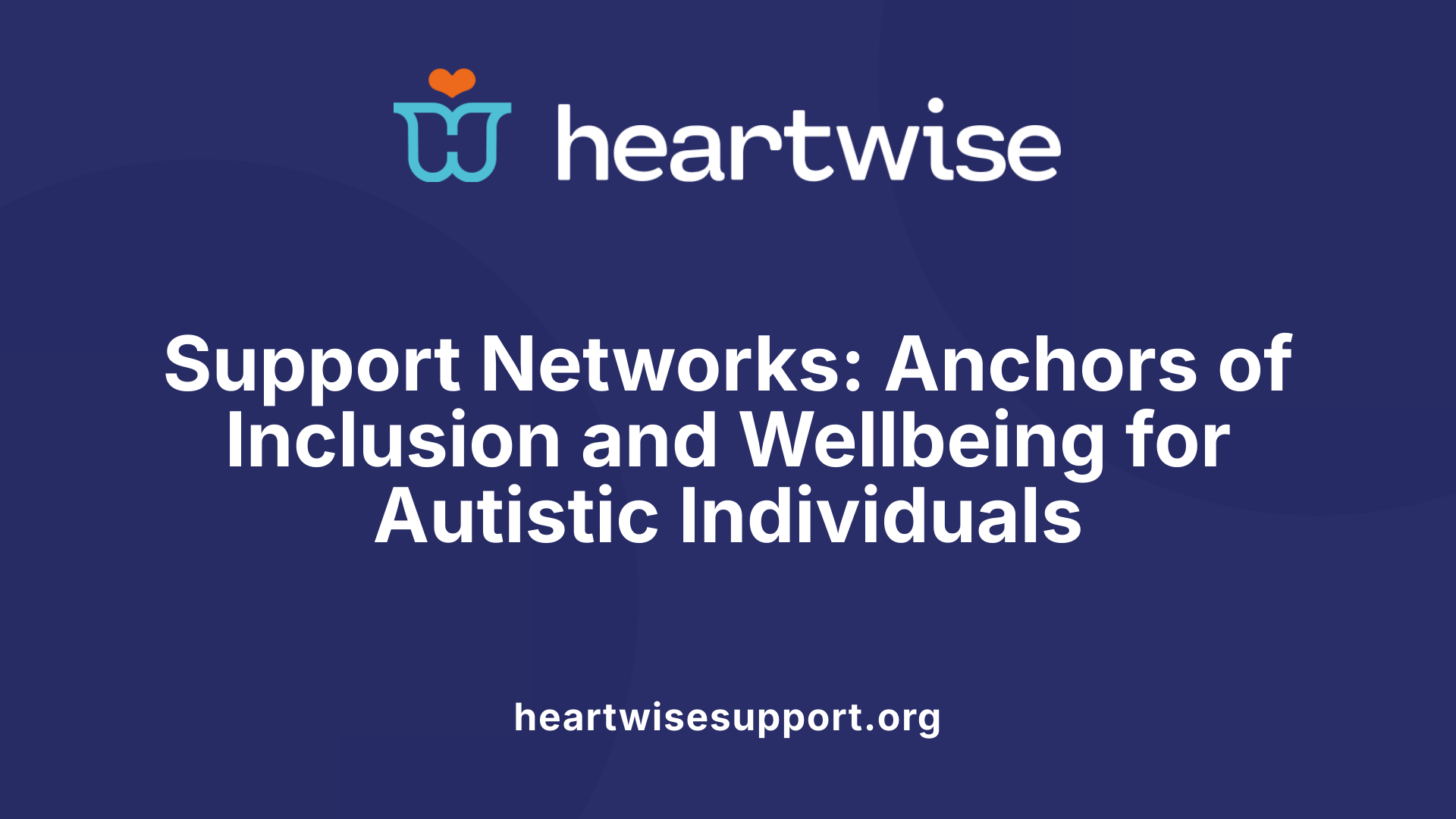
What types of community support groups are available for families and individuals with autism?
Support groups for families and individuals with autism come in various forms. Community-based organizations like Autism Community Network, Different Journeys, and Peer Connect offer platforms for sharing experiences and resources. Family support groups provide emotional backing and practical advice, while specialized groups focus on specific issues such as employment, education, or advocacy.
Online communities also play a crucial role, offering accessible support through social media platforms, forums, and virtual meetups. These groups connect families and individuals across regions, enabling continuous support regardless of geographical barriers.
Organizations like the Carer Gateway and Autism Aboriginal Way tailor their services to diverse cultural and community needs, ensuring inclusive support tailored to individual backgrounds.
| Support Group Type | Focus Area | Typical Activities |
|---|---|---|
| Family support groups | Emotional support, resource sharing | Meetings, workshops, peer mentoring |
| Advocacy groups | Raising awareness, policy influence | Campaigns, public events |
| Specialized groups | Focused on employment, education | Skill-building workshops, mentorship programs |
| Online communities | Accessibility, broad reach | Forums, virtual chats, resource sharing |
These various support structures aim to foster community, resilience, and shared learning, vital for navigating daily challenges.
What benefits do support networks offer to families and individuals with autism?
Support networks provide multiple benefits. They bolster emotional wellbeing by reducing feelings of isolation and offering platforms for mutual understanding. Families often report that participating in support groups alleviates caregiver stress and enhances their resilience.
For individuals with autism, these networks create opportunities for social interaction, skill development, and increased self-esteem. Engagement in community activities fosters a sense of belonging and validation.
Moreover, these networks facilitate access to resources, counseling, and advocacy efforts that help navigate educational, health, and social systems. They can also serve as pathways to employment and independent living.
How do support networks help mitigate feelings of isolation among families and individuals?
Community support groups create tight-knit environments where families and individuals find companionship and shared understanding. Knowing others face similar challenges reduces feelings of loneliness.
Many families emphasize that support networks provide a safe space to express concerns, share successes, and exchange practical tips. This social support not only alleviates emotional burdens but also empowers families to advocate for their needs.
Participation in community activities organized by support groups enhances social integration, helping individuals establish meaningful relationships outside their immediate family circle. These interactions foster a sense of community belonging, promote acceptance, and enhance overall mental health.
How does community involvement influence autism awareness?
Community involvement plays a vital role in raising autism awareness by organizing events, support networks, and advocacy campaigns that educate the public, dispel misconceptions, and promote acceptance.
Organizations like Autism Speaks and the Autism Society actively engage communities through initiatives such as autism awareness months, fundraisers, and inclusive activities in various settings like schools, workplaces, and social events.
Participating in sensory-friendly events, sharing personal stories, and utilizing social media help foster empathy and broader understanding of autism. Moreover, community involvement extends to research, where increased collaboration with autistic adults, parents, and clinicians enhances research relevance and inclusiveness.
Ultimately, sustained community engagement helps create a more inclusive society by promoting acceptance, understanding, and support for individuals with autism and their families.
| Aspect | Description | Impact |
|---|---|---|
| Support group types | Varied community groups, online platforms | Broad range of resources and emotional support |
| Benefits | Emotional wellbeing, resource access, skill development | Enhanced resilience, self-esteem, and community belonging |
| Mitigating isolation | Shared experiences, social activities | Reduced loneliness, increased social bonds |
| Autism awareness efforts | Community events, campaigns, inclusive activities | Increased understanding, acceptance, and inclusion |
Understanding and leveraging community support networks significantly improve the lives of individuals with autism and their families by fostering inclusion, promoting mental health, and raising societal awareness.
Empowering Children and Young Adults through Community Service
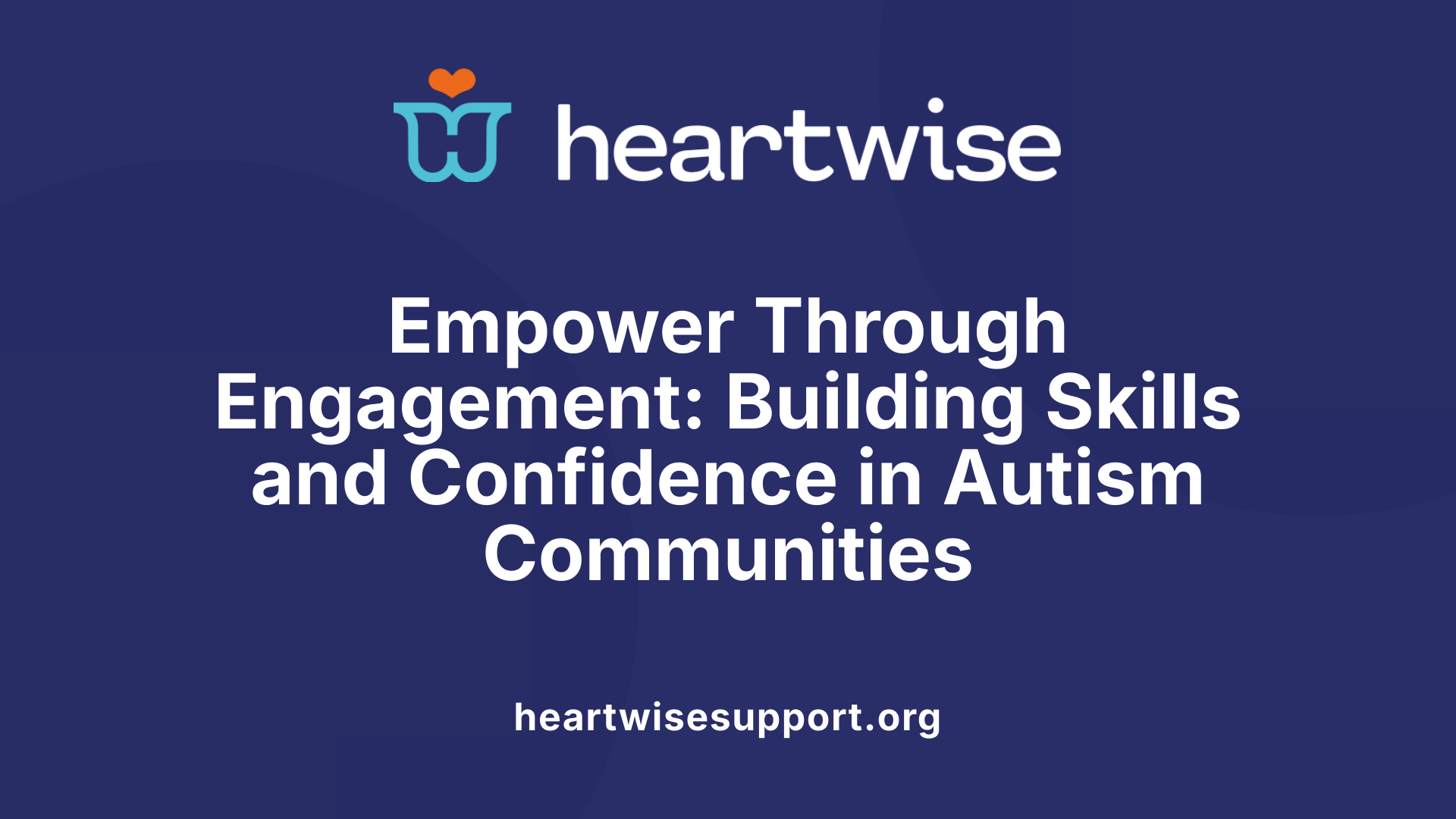
How does community engagement benefit families and individuals with autism?
Community engagement offers numerous advantages for families and those with autism by fostering wider social participation. When children and young adults take part in community activities, it promotes mental health, emotional stability, and a stronger sense of belonging. Supportive environments are crucial in helping individuals develop social skills while reducing feelings of social isolation.
Inclusive programs and autism-friendly events play a significant role in building these skills. They provide safe and structured spaces where individuals can practice communication, cooperation, and social interaction. Such experiences are essential for personal development, fostering independence, and boosting self-esteem.
Families also reap benefits from community involvement. It strengthens family bonds, provides vital support networks, and reduces caregiver stress. These activities create opportunities for families to connect with others facing similar challenges, share resources, and gain emotional support.
To ensure these benefits extend into everyday life, many programs incorporate home-based interventions. These strategies help transfer skills learned in community settings to daily routines, fostering continuous engagement and integration.
Overall, active participation in community activities enriches the lives of individuals with autism and their families. It promotes skill development, independence, and personal growth, leading to a more inclusive society where everyone can thrive.
Community Support and Its Impact on Autistic Adults and Caregivers
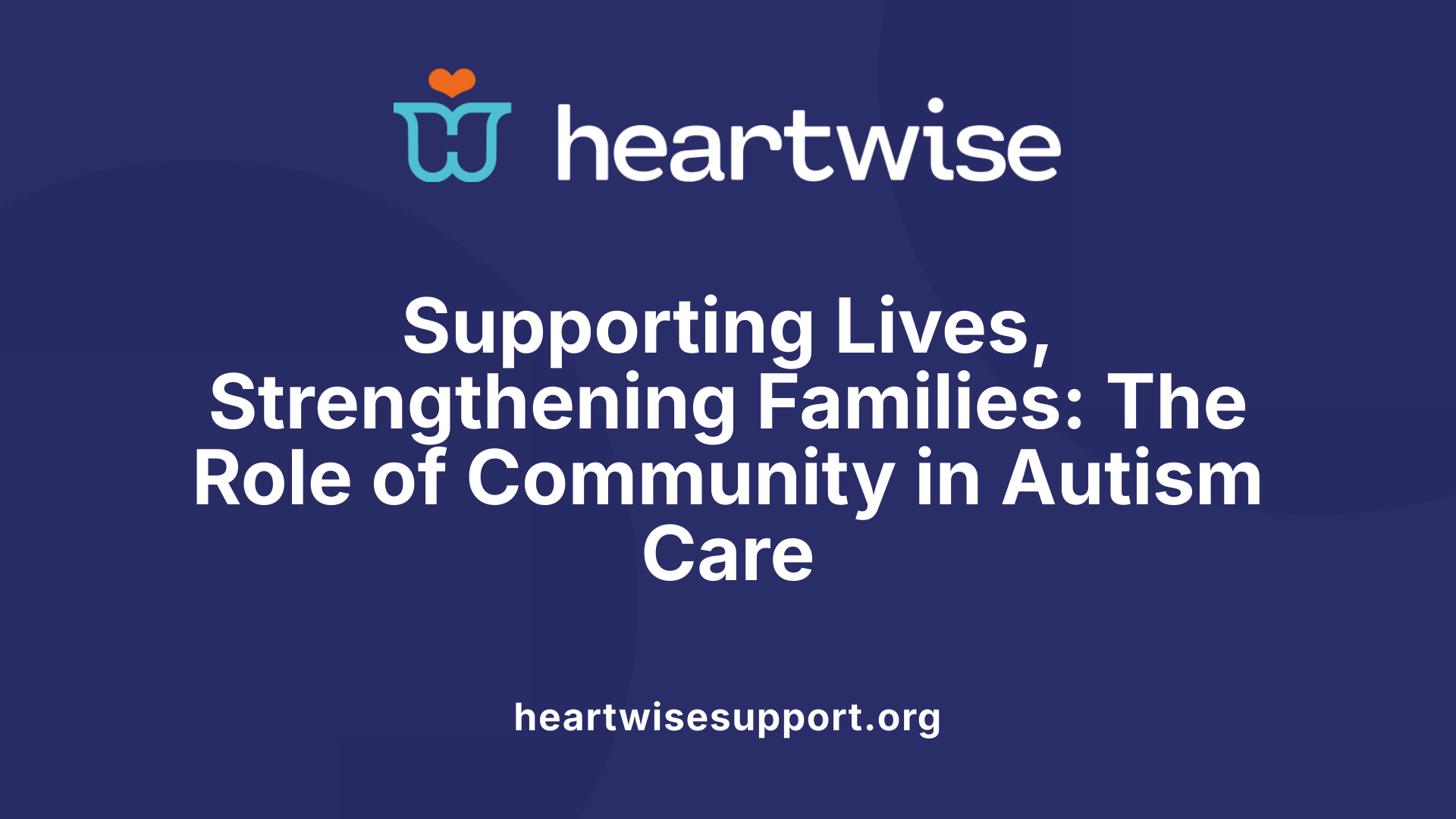
What support services are available for adults with autism and their caregivers?
Support services for autistic adults and their caregivers are vital in promoting well-being, independence, and social inclusion. These services include emotional support groups, practical assistance such as respite care, advocacy programs, and access to resources tailored to adult needs. Organizations like Autism Speaks, The Carer Gateway, and Autism Community Network offer specialized programs that connect families and individuals to relevant resources. Such services help caregivers manage stress, reduce feelings of isolation, and navigate complex systems for employment, healthcare, and housing.
In addition, community programs focus on skill-building activities, employment support, and social opportunities for adults with autism. These initiatives aim to foster independence and help adults integrate more fully into their communities while ensuring they receive personalized support aligned with their unique needs.
How does the community contribute to emotional and practical support?
Community involvement plays a crucial role in providing emotional and practical support to autistic adults and their families. Support groups, both online and offline, create safe spaces for sharing experiences, offering advice, and reducing feelings of isolation. Local community organizations organize events, workshops, and recreational activities that serve as platforms for social interaction and mutual aid.
Practical support also includes accessibility modifications in public spaces, transportation services, and employment programs that accommodate sensory sensitivities and cognitive differences. Community advocacy efforts work to improve policies and ensure that services are inclusive and equitable.
The presence of a supportive community fosters resilience among families, enhances mental health, and promotes a sense of belonging.
What resources are available through community organizations?
Numerous community organizations provide valuable resources for autistic individuals and their caregivers. Notable examples include:
- Autism Community Network: Offers peer support, resources, and community events.
- Different Journeys: Provides peer-to-peer mentoring and community engagement opportunities.
- Peer Connect: Facilitates connections among parents and caregivers.
- The Carer Gateway: Provides practical assistance, counseling, and respite services.
- Autism Aboriginal Way: Focuses on culturally appropriate support for Indigenous communities.
- Autism Connect: Connects families with local services, activities, and support groups.
Furthermore, state autism associations often organize local events, training sessions, and volunteer opportunities that promote inclusion and active participation. These organizations serve as vital hubs for information, social connection, and advocacy, empowering families and adults to take part in community life.
| Organization | Services Offered | Target Audience | Additional Notes |
|---|---|---|---|
| Autism Community Network | Peer support, events, resources | Families, adults with autism | Focus on fostering social participation |
| The Carer Gateway | Respite, counseling, practical assistance | Caregivers of autistic adults | Supports caregiver well-being |
| Autism Speaks Advocacy Tools | Community involvement resources | Families and individuals | Promotes awareness, acceptance, and community action |
| Cultural support programs | Culturally appropriate services | Indigenous communities | Respect for cultural diversity |
How does community involvement influence the social inclusion of individuals with autism?
Community involvement significantly enhances the social inclusion of people with autism by creating environments where they can participate meaningfully. Events, workshops, and service activities foster opportunities for skill development, social interactions, and community engagement.
Participation in inclusive community activities reduces stigma and promotes understanding among the general public. When communities actively support individuals with autism, they showcase strengths and talents, encouraging contributions that enrich local culture.
Moreover, community-based programs help individuals with autism practice social behaviors in safe settings, improving their ability to respond to social cues and develop friendships.
Building a network of support through community organizations and events also nurtures self-esteem, confidence, and independence among autistic individuals.
How does community support affect caregivers' feelings of isolation?
Caregivers’ perceptions of community support directly influence their emotional wellbeing. When caregivers feel supported and included in community activities, they report lower levels of feelings like loneliness and isolation.
Higher perceived community support correlates with increased involvement of their children or loved ones in social activities, which can reduce caregiver stress. Conversely, perceived low community support is associated with higher caregiver feelings of burden and isolation.
Fostering a welcoming and inclusive environment helps caregivers access emotional support networks, share resources, and gain reassurance through interactions with others facing similar challenges.
What are the factors influencing the level of community involvement for children and adults with autism?
Multiple factors impact how children and adults with autism participate in community activities:
- Adaptive functioning: Skills related to communication, socialization, and daily living affect participation levels.
- Severity of ASD symptoms: More pronounced symptoms may pose additional barriers.
- Community accessibility: Physical, sensory, and cognitive demands can inhibit involvement.
- Program modifications: Supportive adaptations like sensory-friendly settings enhance participation.
- Parental and caregiver support: Encouragement and preparation influence engagement.
Adjusting community programs to accommodate individual needs and providing a variety of inclusive activities encourage broader participation.
How can community programs be modified to better support individuals with autism?
Enhancing community programs involves targeted modifications to foster inclusivity:
- Environmental adaptations: Design sensory-friendly spaces, reduce noise, and create quiet zones.
- Structured activities: Offer clear instructions, visual supports, and predictable routines.
- Active engagement: Prepare participants beforehand, involve them actively, and include opportunities for reflection.
- Staff training: Educate staff and volunteers on autism awareness and inclusive practices.
- Diverse activity options: Provide a range of activities that cater to different interests and abilities.
These approaches help reduce sensory overload, facilitate social interactions, and ensure individuals with autism feel welcomed and valued.
How does community support contribute to the overall well-being of autistic adults and their families?
Community support enhances overall well-being by providing emotional comfort, practical assistance, and advocacy. It builds networks where families can share experiences, resources, and encouragement.
Supportive communities help reduce isolation, foster belonging, and promote a positive identity for individuals with autism. Access to diverse activities and employment opportunities also facilitates personal growth and independence.
For parents and caregivers, community involvement offers relief, guidance, and reassurance, which are crucial in managing stress and maintaining resilience. This collective support creates a foundation for a fulfilling and balanced life for autistic individuals and their families.
This comprehensive approach underscores the importance of community as a cornerstone of support, inclusion, and acceptance for everyone touched by autism.
Creating a Culture of Inclusion and Acceptance
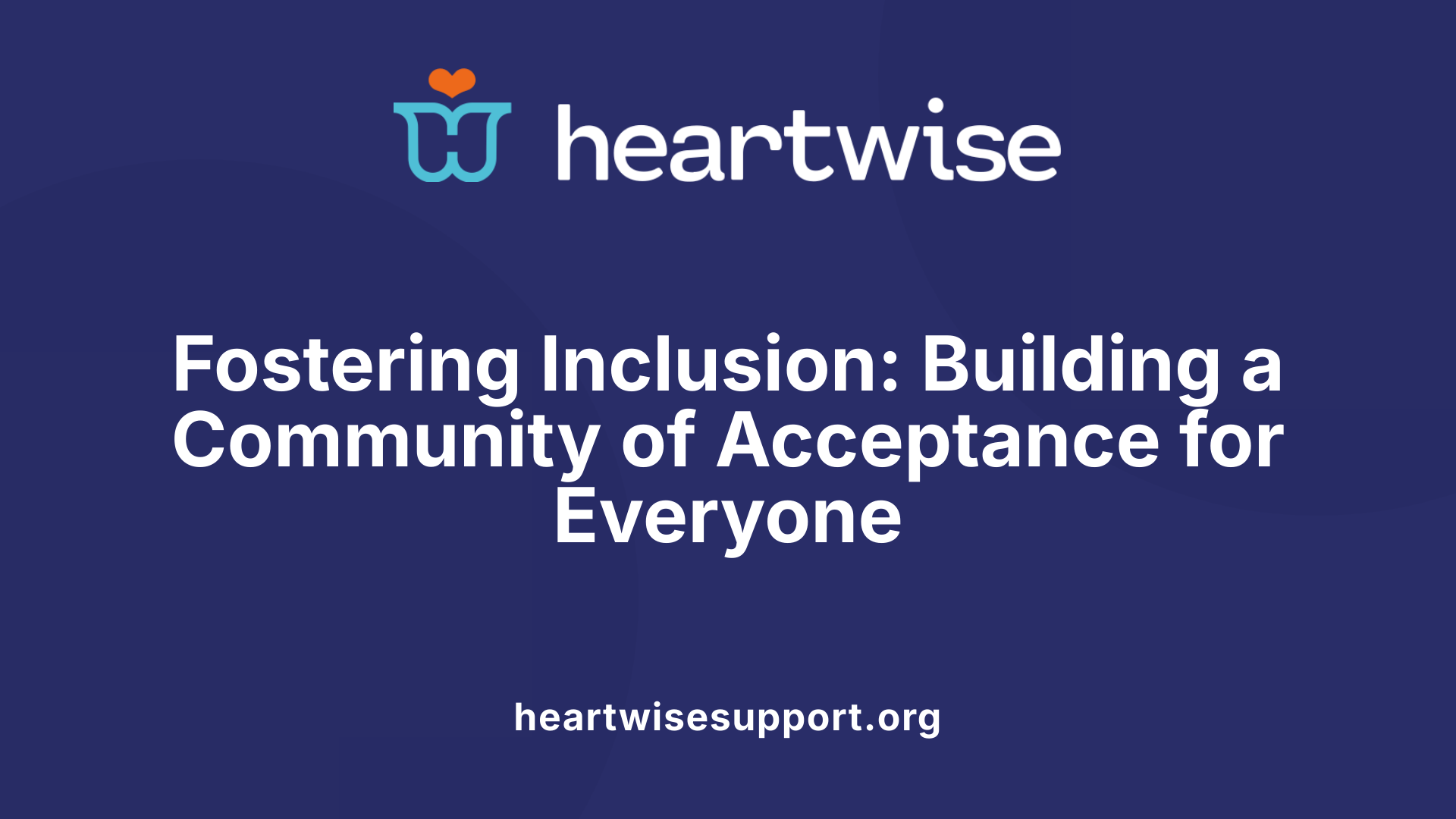
Why is community service important in autism education and awareness?
Community service plays a vital role in fostering understanding, acceptance, and inclusion for individuals with autism. When community members actively participate in events and activities dedicated to autism awareness, they gain a deeper understanding of the challenges and strengths of individuals on the spectrum.
Activities such as distributing informational materials, organizing community events, and engaging in service projects help educate the public about autism, breaking down misconceptions and stereotypes. These efforts not only raise awareness but also promote empathetic attitudes and behavioral acceptance.
For young adults with autism, community service provides invaluable opportunities to develop social skills, build new friendships, and boost self-confidence through meaningful involvement. Engaging in projects like park clean-ups, food drives, or animal care not only benefits the community but also helps individuals with autism feel a sense of achievement and purpose.
Furthermore, community service initiatives encourage collaboration between schools, local organizations, and government agencies. This collective effort creates a supportive environment that reduces societal stigma and fosters a culture of inclusion.
Overall, community involvement in autism awareness initiatives helps shape a society that recognizes the talents of individuals with autism and actively supports their integration into everyday life. It cultivates a more understanding and accepting community where everyone’s contributions are valued.
Fostering an Inclusive Future Through Community Engagement
The active involvement of communities plays a pivotal role in transforming perceptions, enhancing support systems, and promoting the inclusion of individuals with autism. From supporting families and developing social skills to advocating for policy change, community efforts foster understanding and acceptance at every level. By participating in events, engaging in support networks, and creating inclusive environments, communities can bridge gaps, reduce stigma, and provide meaningful opportunities for those with autism to thrive. Sustained dedication to community involvement is essential in building a society that respects diversity, promotes mental well-being, and ensures that every individual with autism is seen, heard, and valued.
References
- Social Participation Experiences of Families Raising a Young Child ...
- The Impact of Community Service for Children with Autism
- 6 Benefits of Community Events for Autism - Aim Higher ABA
- Community Supportiveness May Facilitate Participation of Children ...
- Building Social Skills for Youth with Autism Spectrum Disorder
- Building community support | Autism Awareness Australia
- Out in the Community | Autism Speaks











